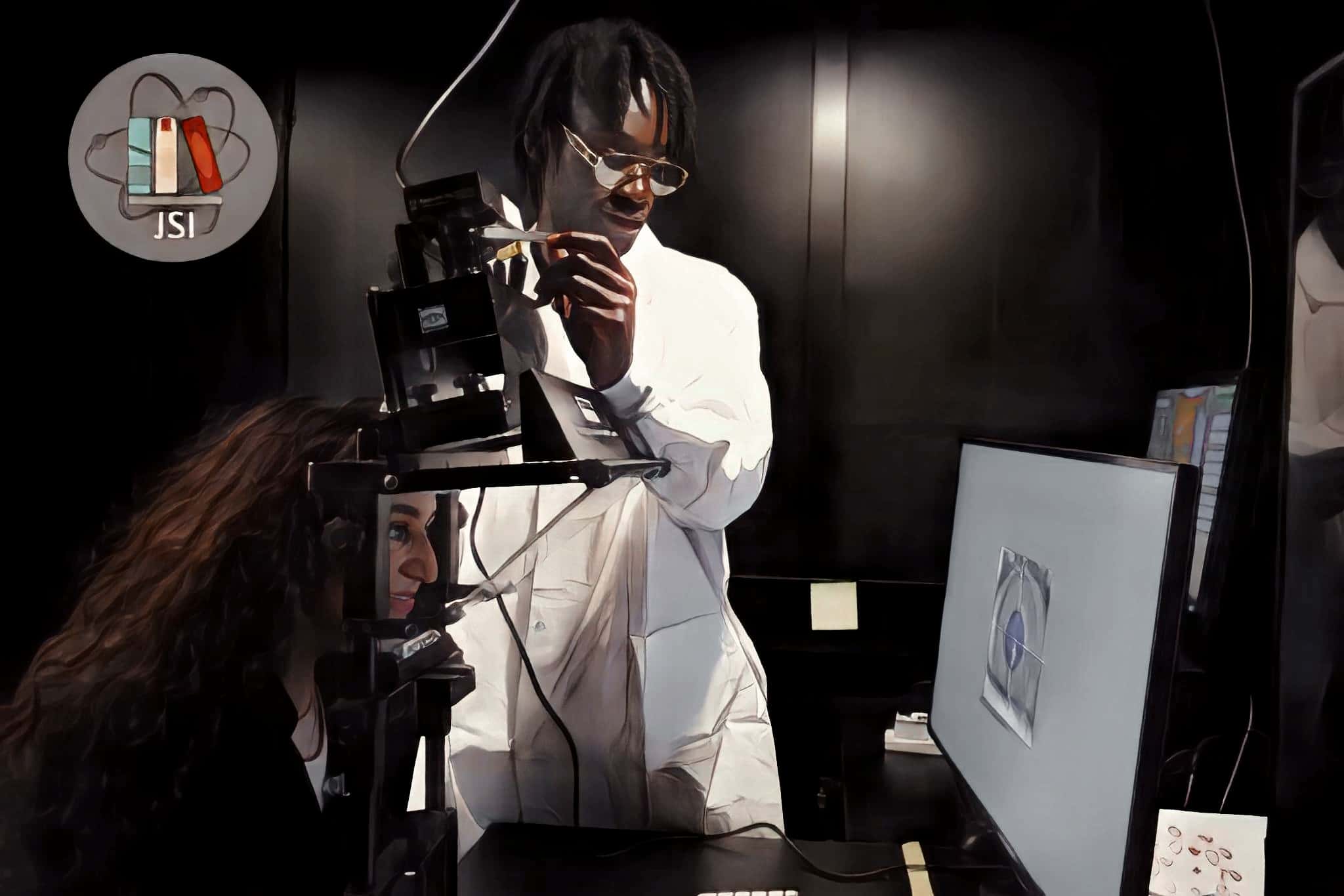The Journal of Scientific Innovation: U of T’s only undergraduate scientific journal
Professor Christopher Eaton and Paige France talk about how their undergraduate scientific journal can help address historical divides.
Open Science is an umbrella term used in a variety of practices, with its greatest tenant being free and open access to scientific research. Most importantly, everyone is encouraged to contribute to these journals. This movement for open science is a response to the history of academia being entrenched in privilege and socioeconomic class. Through undergraduate research journals, the gap between accessibility and students decreases.
Launched in 2021, the Journal of Scientific Innovation (JSI) at the University of Toronto Mississauga (UTM) is spearheaded by Paige France, a third-year student studying Biology for Health Sciences and Psychology. France and Professor Christopher Eaton—Assistant Professor in the Institute of Study of University Pedagogy (ISUP) and the JSI’s Journal Sponsor—are both leaders of the journal.
Professor Eaton’s background highlights the JSI’s mission—an amalgamation of education and writing focused on innovative research. “I was not a scientist by trade, my background is in education and writing,” he reassures. With France’s humble beginnings in both writing for The Medium and in academic writing for the ISUP, the JSI is under keen guidance.
As an open-access tri-campus publication, the JSI invites students from all campuses to submit their own research projects. “Submissions opened last Sunday and are due November 27 at midnight—I’ll be staying up until then,” laughs France. “You wouldn’t believe how many articles come through right at the deadline.” Research papers can also be submitted through their Instagram’s Linktree, @journalofscientificinnovation.
However, the work of a Lead Editor doesn’t end there. After receiving submissions, France anonymizes the papers before sending them through a peer-review process. The JSI’s peer-review team comes together to screen all article submissions and devise a strategy for editing each piece. A critical vote concerning the paper’s content is held to determine whether the submission meets the JSI’s publishing standards. If so, acceptances are sent out. Sometimes, this includes the invitation to revise and re-submit their paper. The JSI’s editing team in turn collaborates with the authors to advise them on content or stylistic changes.
Set to release their third issue, the JSI’s current review process is ready. But this wasn’t always the case. During Covid-19 lockdowns, opportunities across academia were limited—pushing France to start the JSI. Coordinating with researchers bordered impossible, as resources and the ability to recruit and train students were restricted. For France, the hardest part was having to make and uphold pledges during those uncertain times. “I needed to promise my team that this would be a journal, while also promising the university that this journal will have a team,” admits France. “That was one of the most stressful parts of the process,” she shares. Luckily, France’s gamble paid off.
Of course, “there is no journal without a team,” emphasizes France. Professor Eaton, France, and the JSI’s team now use their combined expertise to train other students. Whether it be opinions, meta-analyses, or report pieces, the JSI can handle them all. “Finding the right people to structure [the journal] is crucial,” adds Professor Eaton.
“Building a curriculum around this journal is needed, it’s up to the faculty member to keep this structure in place,” explains Professor. Eaton. Based on the model used by the ISUP, the JSI implements well-researched practices to support authors and editorial students. This curriculum allows new editors and peer-reviewers to be trained, so that even after a visionary Lead Editor like France leaves, the journal can continue to flourish. “The unfortunate reality is that students graduate,” adds Professor Eaton.
However, the spotlight extends beyond the Lead Editor—all participants have a stake to gain. France explains that the benefits of participating in the JSI “are threefold.” “It allows professors to assist students, the editorial teams to train science communication skills, and the authors to publish.” Therefore, it’s possible to join the JSI team without previous research experience. Both editorial and peer-review teams look for applicants with a background in Science, Technology, Engineering, and Mathematics (STEM), and strong writing skills. The difference lies in whether the applicant prefers to work with the authors as an editor, or to work behind the scenes on the peer-review team.
While there has been a larger emphasis placed on the biological sciences in past issues, there have also been feature articles across a vast array of STEM fields. For example, a review on the science behind art conservation and a nuclear energy opinion piece have both caught the attention of the JSI’s editors. “Anything that focuses on innovation in general [can be submitted],” says France, “and any writers looking to pitch an idea are welcome to reach out to Chris and I [journalofscientificinnovation@gmail.com].”
“[The] biggest thing [is that] students submitting a paper need to be open to the fact that it will need [to be] revised,” advises Professor Eaton. “We are not focused on grammar and spelling, we’re worried [about] the ideas” in the submission stage. Students submitting their papers must be prepared to make significant revisions, including altering how they prioritize their thoughts in their pieces. Some papers may need more work than a student is willing to undertake. However, “tweaking and refining exists past undergrad and into all of academia,” Professor Eaton reassures, “This is not an indictment; it’s normal.”
Publishing one’s own research paper as an undergraduate student can be an extremely fulfilling accomplishment. It is one that the JSI is willing to facilitate by creating this opportunity for students at U of T. While they acknowledge that it is a risk for principal investigators to put their name behind such a project, “it’s about the educational opportunity,” says Professor Eaton. Providing meaningful support to up-and-coming scientists embodies the spirit of pedagogy and the JSI. “It’s the chance to contribute to a larger conversation academically, and [to highlight] what this [research can] do in the world,” he finishes.

